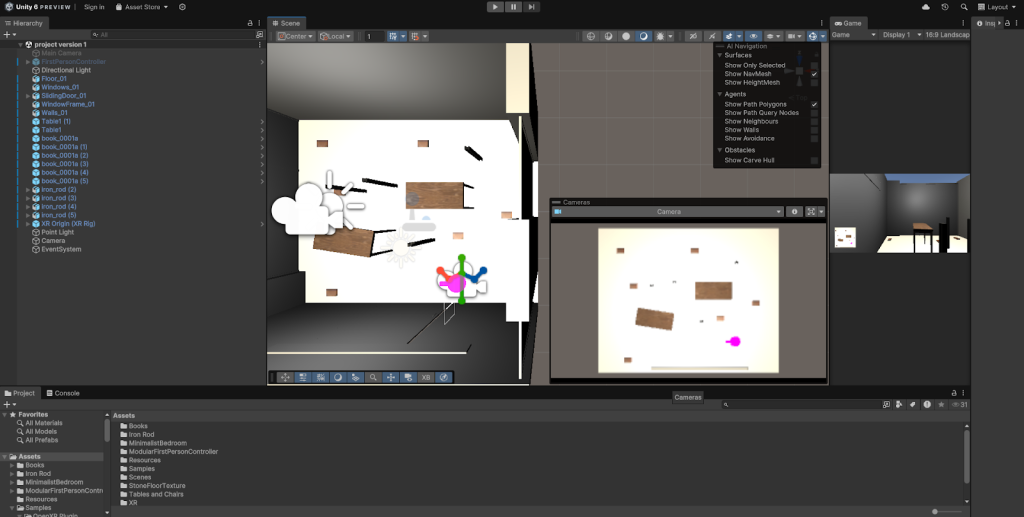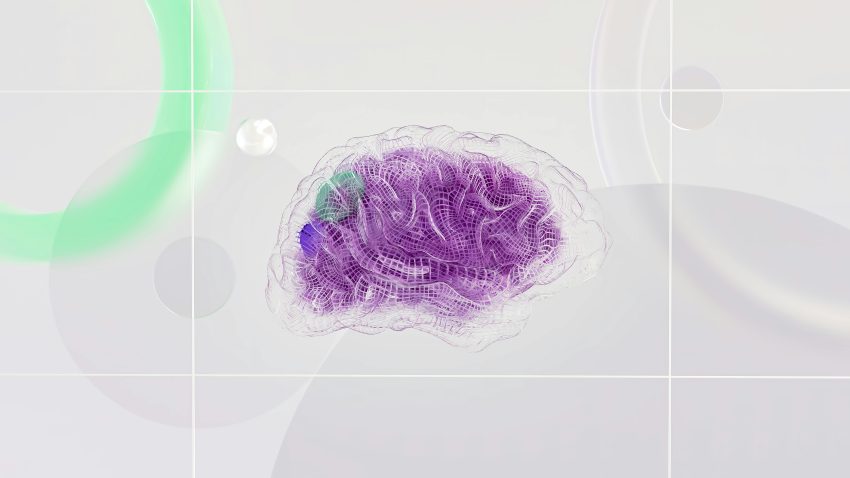By Jo Liberman
What does it feel like for humans to adapt to new environments unconsciously? And how can virtual reality (VR) reveal the ways that consciousness and behavior interact in unexpected ways? As a graduate extern and 4+1 student in Philosophy with a concentration in neuroethics and experimental philosophy of mind, I am exploring how immersive technologies can extend philosophical inquiry beyond the traditional tools of interviews and surveys. These questions will guide my research as a Loretta C. Duckworth Scholars Studio (LCDSS) extern this year.
Through the application of virtual reality, I hope to test long-standing assumptions in the philosophy of mind about free will, self-awareness, and perception. By designing experimental environments that challenge expectations, VR makes it possible to observe behavioral adaptation in real time and to ask whether such changes occur within or outside conscious recognition.
VR and the Philosophy of Mind
Over the last year, I built the foundation for my current research by utilizing the LCDSS VR Lab to demonstrate unconscious shifts in behavior. In the study, participants entered a virtual room with scattered books, two tables, and four vertical rods. Their task was to pick up the books and carry them across the room. Unexpectedly, the tables, though visually solid, could not support the books, while the rods, counterintuitively, could. Participants quickly adapted, placing books on the rods instead of the tables.
Yet when interviewed afterward, many denied having altered their strategies. This disconnect between observed behavior and reported awareness raises important questions: Can adaptation be considered a conscious process if participants are unaware of it? And to what extent can behavior in VR be assumed to reflect real-world behavior?
Researchers Sanchez-Vivez and Slater (https://doi.org/10.3389/fpsyg.2022.787523) have proposed a framework to use VR in studying consciousness. They propose introducing unexpected factors, either modifying the properties of objects or avatar reflection in a VR environment. They aim to use this model to prove the Interface Theory of Perception, which suggests that consciousness is prior to our environment and that what we see is actually only determined by our own mind rather than an external reality. Sanches-Vives and Slater’s proposition has guided my research and helped me formulate the currently used framework for this research. My study aims to show that perception is an integral component of our understanding of the world and ourselves within it, and through VR, we are able to see adaptations that result from changes in the worldview of a perceived environment.

Designing the Study
This year, I am conducting a new series of studies to build on these insights. Using Oculus Rift and PICO headsets equipped with accelerometers, gyroscopes, and inside-out tracking, participants will navigate both VR and augmented reality (AR) environments while being interviewed about their experiences. In AR, they will see their real surroundings overlaid with virtual objects. This modification will hopefully increase the realism of the virtual environment and immerse participants more. Real objects will be placed in the space, which will be overlaid with exact virtual copies. Some virtual objects will not have a physical counterpart, however, and therefore will mirror the previous paradigm, which included some perceptual cues from objects that did not behave as expected.
Our goal is to identify exactly how people behave when met with perceptual cues that lead them to question their worldview of an environment. We are interested in seeing whether people will treat the unnatural objects differently or change their idea or understanding of the environment in which they are. We hope to note and show these changes through people’s behavior, such as their interactions with objects, their distance to objects, and the time they spend exploring objects in the AR space.
At the VR Lab at the LCDSS, we will conduct the second and third stages of this research. The second stage will be heavily focused on perception rather than interaction with objects. I plan to craft a dynamic environment in virtual reality (VR) that would change in proportion to the user. We are accustomed to seeing our limbs behave in time with our will to move them. In VR, we are able to create a delay, which we hope will question the extent to which agency is determined by perceptual cues. The overarching question of this second stage is: What does perception offer us? Can we have agency or an understanding of ourselves in our environment without perception?
Finally, the third stage will be an interview between myself and the participants about their experiences in both previous stages. I will be asking questions such as “Did your actions in the VR environment feel the same as the actions in reality? And can you explain why or why not?”, “Did you see yourself in the VR environment the same way that you do in the real world?”, and “Did you feel like you had the same control over your actions in VR as you do in the real world?”. Through this stage, we hope to gain insight into interpersonal differences between participants.

A Real-World Impact
By combining behavioral data, motion capture, and participant interviews, these studies aim to shed light on how perception, agency, and consciousness interact in immersive environments. The findings may contribute to philosophical debates about free will and self-awareness, while also offering practical insights for psychology and neuroscience.
Importantly, VR research has clear translational potential. Exposure therapies using VR have already been shown to be effective in treating PTSD, OCD, and phobias. Understanding how unconscious and conscious processes interact in VR could help refine these therapeutic methods, ensuring that VR-based interventions more closely mirror real-world cognition.
